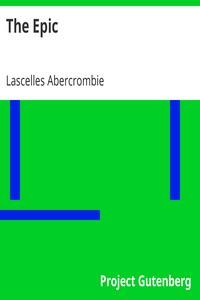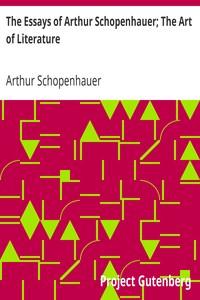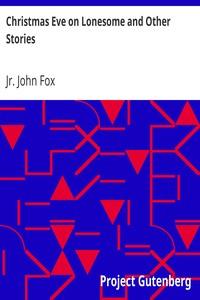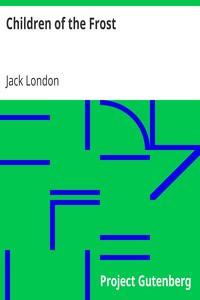|
|
Read this ebook for free! No credit card needed, absolutely nothing to pay.Words: 24480 in 4 pages
This is an ebook sharing website. You can read the uploaded ebooks for free here. No credit cards needed, nothing to pay. If you want to own a digital copy of the ebook, or want to read offline with your favorite ebook-reader, then you can choose to buy and download the ebook.

: The Epic An Essay by Abercrombie Lascelles - Epic poetry History and criticism@FreeBooksTue 06 Jun, 2023 The Epic: an Essay Towards a Theory of Art Speculative Dialogues Four Short Plays Thomas Hardy: A Critical Study Principles of English Prosody BEGINNINGS An epic is not made by piecing together a set of heroic lays, adjusting their discrepancies and making them into a continuous narrative. An epic is not even a re-creation of old things; it is altogether a new creation, a new creation in terms of old things. And what else is any other poetry? The epic poet has behind him a tradition of matter and a tradition of style; and that is what every other poet has behind him too; only, for the epic poet, tradition is rather narrower, rather more strictly compelling. This must not be lost sight of. It is what the poet does with the tradition he falls in which is, artistically, the important thing. He takes a mass of confused splendours, and he makes them into something which they certainly were not before; something which, as we can clearly see by comparing epic poetry with mere epic material, the latter scarce hinted at. He makes this heap of matter into a grand design; he forces it to obey a single presiding unity of artistic purpose. Obviously, something much more potent is required for this than a fine skill in narrative and poetic ornament. Unity is not merely an external affair. There is only one thing which can master the perplexed stuff of epic material into unity; and that is, an ability to see in particular human experience some significant symbolism of man's general destiny. Epic poetry, then, as distinct from mere epic material, is the concern of this book. The intention is, to determine wherein epic poetry is a definite species of literature, what it characteristically does for conscious human life, and to find out whether this species and this function have shown, and are likely to show, any development. It must be admitted, that the great unifying poet who worked on the epic material before him, did not always produce something which must come within the scope of this intention. Hesiod has just been given as an instance of such a poet; but his work is scarcely an epic. The great sagas, too, I must omit. They are epic enough in primary intention, but they are not poetry; and I am among those who believe that there is a difference between poetry and prose. If epic poetry is a definite species, the sagas do not fall within it. But this will leave me more of the "authentic" epic poetry than I can possibly deal with; and I shall have to confine myself to its greatest examples. Before, however, proceeding to consider epic poetry as a whole, as a constantly recurring form of art, continually responding to the new needs of man's developing consciousness, I must go, rapidly and generally, over the "literary epic"; and especially I must question whether it is really justifiable or profitable to divide epic poetry into the two contrasted departments of "authentic" and "literary." FOOTNOTES: LITERARY EPIC But doubtless the real reason for the hard division of epic poetry into two classes, and for the presumed inferiority of "literary" to "authentic," lies in the application of that curiosity among false ideas, the belief in a "folk-spirit." This notion that such a thing as a "folk-spirit" can create art, and that the art which it does create must be somehow better than other art, is, I suppose, the offspring of democratic ideas in politics. The chief objection to it is that there never has been and never can be anything in actuality corresponding to the "folk-spirit" which this notion supposes. Poetry is the work of poets, not of peoples or communities; artistic creation can never be anything but the production of an individual mind. We may, if we like, think that poetry would be more "natural" if it were composed by the folk as the folk, and not by persons peculiarly endowed; and to think so is doubtless agreeable to the notion that the folk is more important than the individual. But there is nothing gained by thinking in this way, except a very illusory kind of pleasure; since it is impossible that the folk should ever be a poet. This indisputable axiom has been ignored more in theories about ballads--about epic material--than in theories about the epics themselves. But the belief in a real folk-origin for ballads, untenable though it be in a little examination, has had a decided effect on the common opinion of the authentic epics. In the first place, a poem constructed out of ballads composed, somehow or other, by the folk, ought to be more "natural" than a work of deliberate art--a "literary" epic; that is to say, these Rousseau-ish notions will admire it for being further from civilization and nearer to the noble savage; civilization being held, by some mysterious argument, to be deficient in "naturalness." In the second place, this belief has made it credible that the plain corruption of authentic epic by oral transmission, or very limited transmission through script, might be the sign of multiple authorship; for if you believe that a whole folk can compose a ballad, you may easily believe that a dozen poets can compose an epic. Seigneurs, faites silence; et que tout bruit cesse, Si vous voulez entendre une glorieuse chanson. Aucun jongleur ne vous en dira une meilleure. Then some vaguely prelusive lines. But the audience is clearly not quite ready yet, for the second section begins: Barons, ?coutez-moi, et cessez vos querelles! Je vous dirai une tr?s-belle chanson. And after some further prelude, the section ends: Free books android app tbrJar TBR JAR Read Free books online gutenberg More posts by @FreeBooks
: The Essays of Arthur Schopenhauer; The Art of Literature by Schopenhauer Arthur Saunders T Bailey Thomas Bailey Translator - Literature Philosophy@FreeBooksTue 06 Jun, 2023

: The Bullitt Mission to Russia Testimony before the Committee on Foreign Relations United States Senate of William C. Bullitt by Bullitt William C William Christian - Paris Peace Conference (1919-1920). Russia; United States Foreign relations Soviet Union;@FreeBooksTue 06 Jun, 2023
|
Terms of Use Stock Market News! © gutenberg.org.in2025 All Rights reserved.






